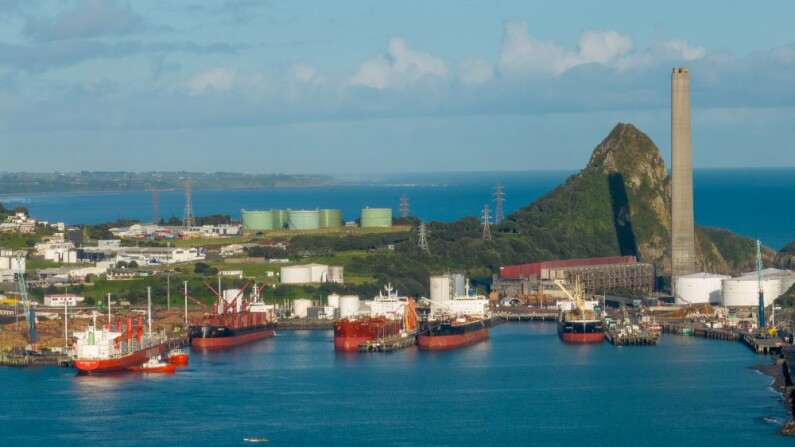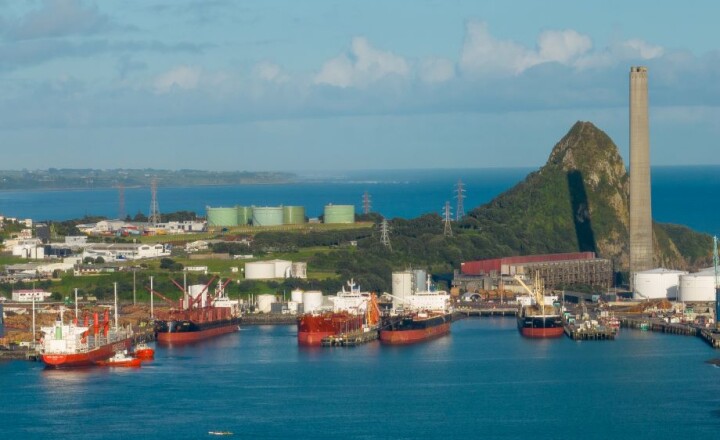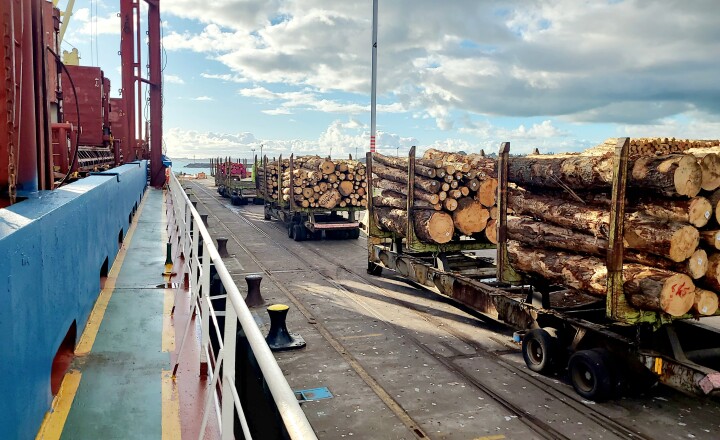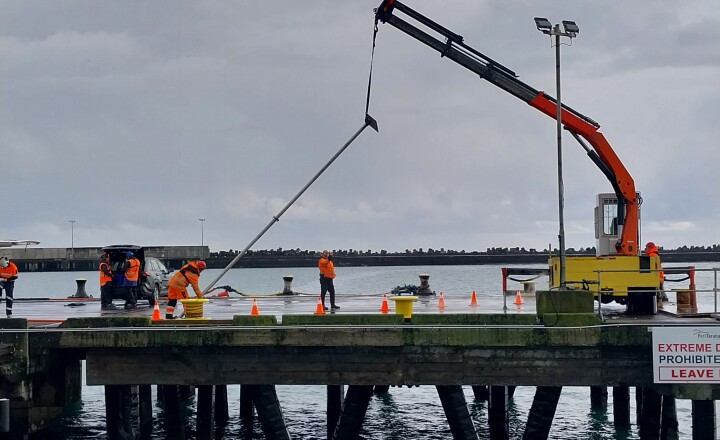
An increase in ship visits, improved bulk liquids trade, increased offshore support work, and several one-off extraordinary items have helped Port Taranaki post a record result for the 2022-23 financial year.
For the year ended 30 June 2023, Port Taranaki recorded net profit after tax (NPAT) of $13.87 million, up on the $9.91 million recorded in 2021-22. This was a record NPAT for Port Taranaki, exceeding the $12.24 million in the 2019-20 year. Revenue rose 12% from $51.46 million to $57.43 million.
“Notwithstanding the contribution of some one-offs, this is a fantastic result. It highlights the hard work put in by the Port Taranaki team to support our customers across a range of sectors and make it as easy as possible for them to trade through our port,” Port Taranaki chief executive Simon Craddock said.
“It also underlines our port’s strengths of building strong relationships, the important assets and skills we have at port, and the expertise, knowledge and experience of our marine services team to efficiently and professionally provide valuable services off the West Coast.”
Vessel visits for the year were 293, an increase of nine on the previous year, and the highest number of visits in eight years.
This was in part due to the start of new coastal shipping services, with smaller coastal vessels calling regularly at port, and because of the closure of Marsden Point oil refinery, resulting in an increased number of part loads of refined fuel oils and bitumen coming to port.
Liquid bulk trade increased 101,000 tonnes to 2.82 million tonnes, with methanol trade improving 116,000 tonnes to 1.71 million tonnes.
“Methanex continues to invest in its site, including turnaround maintenance in July, which is encouraging and demonstrates the company has continued confidence in its New Zealand operations,” Mr Craddock said.
“The gas sector remains incredibly important for New Zealand energy resilience, and has been acknowledged as a critical transition fuel to a net-zero future. We’re here to support the next phase of gas, and our offshore support work has increased in the past year in line with an increase in life-extending activity at gas fields.”
Port Taranaki’s result was boosted by several one-off extraordinary items totalling $1.58 million – an insurance payout from damage caused by Cyclone Dovi, the termination of a pipeline lease, two tug charters, a visit to Port Taranaki by the HMNZS Aotearoa, and the visit of the Helix Q7000 well intervention vessel as part of the Tui oil field decommissioning.
Overall trade was 4.69 million tonnes for the 2022-23 year.
At 711,000 tonnes, dry bulk trade was down 108,000 tonnes on the record trade of 819,000 tonnes the previous year. Several factors contributed to its reduction, including rising input prices and finance costs, softening of farm returns and good grass growth.
Although down slightly – 29,000 Japanese Agricultural Standard (JAS) to 1.09 million JAS – log trade through Port Taranaki was relatively strong given that there have been difficulties for the forestry sector in the past year.
“A downturn in the Chinese construction industry impacted demand, Cyclone Gabrielle impacted supply, and high interest rates impacted harvest crews in New Zealand. This has resulted in reduced log volumes nationally, but we’re very pleased that log exporters have sent volumes through Port Taranaki comparable with 2021-22,” Mr Craddock said.
Operating expenses for the 2022-23 year were $29.97 million, up $195,000, driven by personnel, energy and insurance costs. This was offset by repairs and maintenance costs, which were down $1.06 million to $4.29 million, due to consenting delays impacting roading maintenance.
The Port Taranaki Board of Directors has declared a final dividend for the year of $4.5 million, taking total dividends paid to shareholder the Taranaki Regional Council to $8.5 million, an increase on the $8 million paid in the last financial year. These dividends help ease the rates burden on regional ratepayers.
Port Taranaki continues to invest in its assets to ensure it meets customer needs and remains adaptable to changes in market demands and trends.
In the past year, this has included the completion of the $16 million freshwater firewater system on the Newton King Tanker Terminal, the development of three new laydown and storage areas for goods or project cargo, continued investment in stormwater systems in the operations area, and an ongoing programme of under-wharf maintenance work to ensure the longevity of the port’s critical assets.
“We’re also looking to the future, and have been working with offshore wind energy developers, who have plans to build projects off the South Taranaki and Waikato coasts,” Mr Craddock said.
“We believe this industry provides great opportunities for our port and region, as offshore wind will play an important role in helping New Zealand reach its decarbonisation goals. A study into our ability to support an offshore wind industry has found that we are well positioned to be a marshalling port, with certain upgrades to port infrastructure needed.
“Therefore, we’ll be looking to government to provide regulatory settings and support to enable these projects to get under way.”
Mr Craddock said supporting the community continued to be a focus.
“We’ve been proud to continue our sponsorship and support of many local groups, organisations and events, and provide community assets such as the Lee Breakwater boat ramp and kids’ fishing jetty,” Mr Craddock said.
“We really value the important, and developing, relationship we have with Ngāti Te Whiti hapū and Te Kotahitanga O Te Atiawa, and their co-operation on port and cultural-related matters. We’re also pleased to be developing the cruise industry in Taranaki, alongside Te Puna Umanga/Venture Taranaki, and helping create a vibrant tourism sector in our region.”
Port Taranaki Board chair Jeff Kendrew said the forecast for 2023-24 was for revenue growth and increased trade.
“However, there remains uncertainty as international economic conditions remain volatile. We’ll continue to focus on controlling the port’s cost base, optimising land use, supporting customers, remaining flexible to trade changes, and ensuring Port Taranaki remains a sustainable and successful business.”
Mr Kendrew made special mention of long-time Board members, former chair Richard Krogh and David MacLeod, who stood down earlier this year.
“We thank Richard and David for their valuable contribution to Port Taranaki across the past two decades. Their expertise and guidance have helped Port Taranaki continue to be a key economic asset for the region.”


